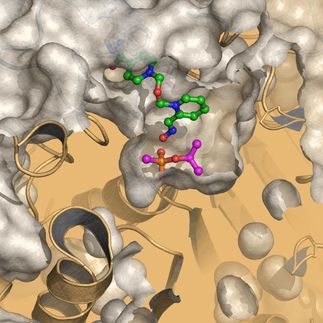Proximagen announces positive efficacy results in NIH epilepsy studies
Advertisement
Proximagen Neuroscience plc announced headline results from the successful completion of a year-long non-clinical testing programme undertaken by the National Institute of neurological disorders and stroke (NINDS) at the National Institute of Health (NIH) in the United States, which confirm tonabersat’s potential as a drug to treat epilepsy.
The highly encouraging results from this programme of work have been supplied by NINDS in the form of a Red Book report on the anticonvulsant profile of tonabersat. This report confirms Proximagen’s view that tonabersat is potentially an exciting novel treatment for epilepsy.
The NINDS Red Book report concluded that, at doses devoid of behavioural toxicity, tonabersat possesses an anticonvulsant profile in models predictive of efficacy in patients who experience tonic-clonic seizures. The Red Book report also commented that the results obtained in the evaluation of tonabersat suggest that this compound may be similar in efficacy to three of the leading anti-epilepsy drugs.
Tonabersat is one of the drugs in the portfolio of Minster Pharmaceuticals plc. Proximagen announced an offer to acquire the entire share capital of Minster on 4 January 2010 and has since announced, on 5 March 2010, that valid acceptances representing approximately 91.26% of the issued share capital have been received and that the compulsory acquisition of the outstanding Minster shares would begin.
Commenting on the findings published in the Red Book, Dr Steve White, Professor of Pharmacology and Toxicology at the University of Utah and Scientific Director of the NIH-sponsored Anticonvulsant Drug Development Program, said: “Tonabersat represents a mechanistically novel drug for the treatment of epilepsy. The novel mechanism of action of tonabersat may have the potential to fill an unmet medical need in the treatment of patients with therapy resistant epilepsy”.
Most read news
Other news from the department research and development

Get the life science industry in your inbox
By submitting this form you agree that LUMITOS AG will send you the newsletter(s) selected above by email. Your data will not be passed on to third parties. Your data will be stored and processed in accordance with our data protection regulations. LUMITOS may contact you by email for the purpose of advertising or market and opinion surveys. You can revoke your consent at any time without giving reasons to LUMITOS AG, Ernst-Augustin-Str. 2, 12489 Berlin, Germany or by e-mail at revoke@lumitos.com with effect for the future. In addition, each email contains a link to unsubscribe from the corresponding newsletter.


























































